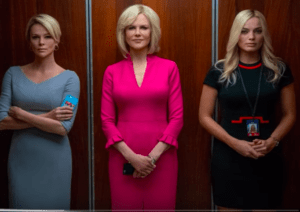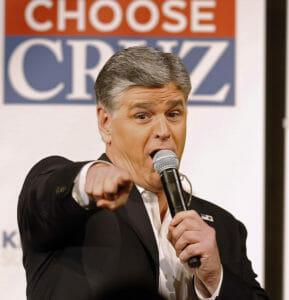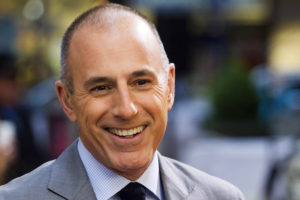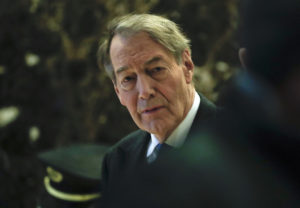A Farewell to ‘Black America’
The cliché does not mean much anymore. It's time to start seeing African-Americans as Americans, period.WASHINGTON — What do Fox News polemicist Bill O’Reilly, nappy-headed radio jock Don Imus, Supreme Court Justice Clarence Thomas, the leading Republican presidential candidates, the National Urban League, the NAACP and much of the national media have in common?
They don’t see, or don’t want to admit, that “black America” is an increasingly meaningless concept — nearly as imprecise as just plain “America.”
Why is O’Reilly under siege? Because he was shocked to learn that there exists in this country an upscale black-owned restaurant with an affluent African-American clientele. Four or five decades ago, you could reasonably generalize that “black America” was poor. Today, African-Americans control nearly $800 billion in annual purchasing power — enough to dine occasionally at restaurants that have tablecloths.
Why did Imus get fired by CBS and NBC? Because now there are senior black professionals in both of those companies with the clout to march into top executives’ offices and argue that Imus had to go. Also because Al Roker, an African-American who happens to be one of the stars of “Today” — often described as the most profitable show in all of television — called publicly for Imus’ head, or at least his cowboy hat.
Why does Thomas, in his pugnacious autobiography, insist that he’s being persecuted for holding views that are somehow off-limits to black Americans? Apparently, it would destroy his sense of his own exceptionalism to acknowledge the many African-Americans who share his conservative social views and his ethic of personal responsibility and self-help. (He’s right, though, that on the subject of affirmative action, most black Americans do think he’s nuts.)
Why do the leading Republican candidates simply write off the African-American vote, even though there’s clearly a growing number of black voters who demographically fit the Republican profile? Hasn’t the GOP noticed that here in the Washington area — we’re in the vanguard, but other cities are following our lead — more African-Americans live in the suburbs than in the city proper?
The Democratic candidates haven’t really broadened their messages to take into account African-American economic and cultural diversity, either. But at least they noticed that there now exists a cohort of black Americans with unprecedented wealth and power — luminaries who are well worth pursuing for money and endorsements, just like their white counterparts. Hillary Clinton has snagged Magic Johnson, Bob Johnson, Quincy Jones and others. Barack Obama has nabbed Oprah Winfrey, who transcends even the rest of the transcendent.
Why does the National Urban League, an organization for which I have great respect, compile its annual “State of Black America” report in a way that makes the condition of African-Americans seem both better and worse than it really is? The 2007 report’s painstakingly calculated “equality index” says, for example, that African-Americans score 0.57 on the economic scale (full parity with whites would be a score of 1.0). But census data suggests that there’s a sizable cluster of educated, middle-class black households that would score much closer to parity with whites, and another large cluster of disadvantaged black households that would lag much farther behind.
Trying to encompass all of black America in a few easily grasped numbers is far from a meaningless exercise. But it doesn’t point the way toward specific policies for different segments of a diverse population.
Why has the NAACP, once such a potent force, lost so much of its membership and relevance? I would argue that it’s because the organization continues to look for a “black agenda” around which we can all unite with the fervor and passion of decades past, when in fact there’s a need for multiple agendas.
Why do editors, reporters, columnists and television producers keep only two phone numbers on speed-dial for use whenever any news breaks concerning a black person? Don’t get me wrong, I’m not saying they shouldn’t call the Revs. Jesse Jackson and Al Sharpton for comment — I like and respect both, and value what they have to say. But it’s a bit much when those same reporters, editors, columnists and producers then proceed to do stories asking who appointed Jackson and Sharpton as spokesmen for all African-Americans.
The problem is that we all say we want an “honest dialogue” about race, but we’ve been having the same old arguments for years — affirmative action, inner-city dysfunction, overt and covert racism — and we seem to be stuck. We need a new language, a new vocabulary and syntax.
Let’s start by opening our eyes and recognizing that if there ever was a monolithic “black America” — absolutely and uniformly deprived and aggrieved, with invariant values and attitudes — there certainly isn’t one now.
Eugene Robinson’s e-mail address is eugenerobinson(at)washpost.com.
© 2007, Washington Post Writers Group
Your support matters…Independent journalism is under threat and overshadowed by heavily funded mainstream media.
You can help level the playing field. Become a member.
Your tax-deductible contribution keeps us digging beneath the headlines to give you thought-provoking, investigative reporting and analysis that unearths what's really happening- without compromise.
Give today to support our courageous, independent journalists.





You need to be a supporter to comment.
There are currently no responses to this article.
Be the first to respond.